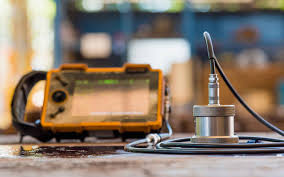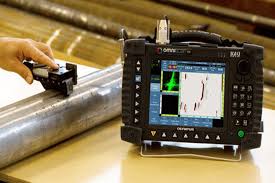NDT safety regulations Egypt have recently undergone significant changes with the introduction of new regulations and standards. These changes have been implemented to ensure the safety of Non-Destructive Testing (NDT) practices in Egypt. This introduction will explore the impact of Egypt's new regulations and standards on NDT safety, ndt companies and the measures put in place to ensure the highest level of safety in NDT procedures.
Egypt has recently implemented new regulations and standards to ensure the safety of Non-Destructive Testing (NDT) procedures. These regulations aim to enhance the quality and reliability of NDT practices in various industries, including oil and gas, manufacturing, and construction. The new standards cover guidelines for equipment certification, personnel training and certification, inspection procedures, and documentation requirements. By adhering to these regulations, companies can mitigate the potential risks associated with NDT activities and ensure the safety of their workers, assets, and ndt level 1 2 3 the environment. Compliance with these regulations also helps to maintain the integrity of infrastructure and equipment, ultimately contributing to the overall safety and quality of products and services in Egypt.
Understanding the Importance of NDT Safety Regulations in Egypt
ndt companies

NDT safety regulations in Egypt are critical for ensuring the proper functioning and maintenance of various industrial components and infrastructure. These regulations aim to safeguard the health and safety of workers, as well as the general public, by mitigating the risks associated with non-destructive testing (NDT) non destructive inspection processes. In Egypt, NDT safety regulations are enforced by government agencies such as the Egyptian Atomic Energy Authority and the Egyptian Organization for Standardization and Quality. Adhering to these regulations is crucial for preventing accidents, minimizing environmental impact, and upholding quality standards in industries such as oil and gas, construction, and manufacturing. Additionally, compliance with NDT safety regulations can enhance Egypt's reputation as a safe and reliable destination for investment and business activities. Overall, understanding and following NDT safety regulations is essential for promoting a secure and sustainable industrial landscape in Egypt.
The Evolution of NDT Safety Regulations in Egypt: A Historical Perspective

The Evolution of NDT Safety Regulations in Egypt: A Historical Perspective is a research paper that delves into the development of safety regulations in the field of non-destructive testing (NDT) in Egypt over the years. The paper explores the historical context and the various factors that have influenced the evolution of NDT safety regulations in the country. It discusses the role of government policies, industry standards, technological advancements, and international collaborations in shaping the regulatory framework for NDT practices. The paper also highlights the challenges and obstacles that have been encountered in the process of formulating and implementing effective safety regulations for NDT in Egypt. Overall, the research provides insight into the dynamic nature of NDT safety regulations and the efforts made to ensure the safety and reliability of NDT techniques in the country.
Challenges and Opportunities in Implementing NDT Safety Regulations in Egypt

Challenges in implementing NDT safety regulations in Egypt include lack of awareness and understanding among industry professionals, insufficient technical expertise, limited resources for enforcement and inspection, and resistance to change within the industry. Additionally, the decentralized nature of the regulatory framework can create inconsistencies and gaps in enforcement. Opportunities for improvement in NDT safety regulations in Egypt include increasing education and training for NDT professionals, enhancing collaboration between government agencies and industry stakeholders, investing in modernizing infrastructure and equipment for inspection and testing, and promoting a culture of compliance and safety within the industry. Additionally, aligning with international standards and best practices can enhance the credibility and reliability of NDT processes in Egypt.
The Impact of NDT Safety Regulations on the Workforce in Egypt
The impact of NDT safety regulations on the workforce in Egypt has been significant. These regulations have helped to improve the safety and well-being of workers in industries where non-destructive testing is utilized, such as construction, manufacturing, and oil and gas. The implementation of NDT safety regulations has led to a reduction in workplace accidents and injuries, as well as an increase in overall workplace safety. This has had a positive impact on the physical and mental health of workers, as well as their productivity and job satisfaction. Additionally, NDT safety regulations have also led to an increase in the demand for well-trained and certified NDT professionals in Egypt. This has created new job opportunities and career growth for individuals looking to work in the field of non-destructive testing. Overall, the implementation of NDT safety regulations has had a positive impact on the workforce in Egypt, leading to a safer work environment and new opportunities for employment and career advancement in the field of non-destructive testing.
Ensuring Compliance with NDT Safety Regulations in Egypt: Best Practices
Ensuring compliance with NDT safety regulations in Egypt involves adhering to best practices in the industry. This includes following the guidelines and standards set by regulatory authorities such as the Egyptian Organization for Standardization and Quality. Some best practices for ensuring compliance with NDT safety regulations in Egypt include: 1. Proper training and certification of NDT personnel to ensure they have the necessary skills and knowledge to perform inspections safely and accurately. 2. Regular inspection and maintenance of NDT equipment to ensure it is in good working condition and meets safety standards. 3. Adherence to safety protocols and procedures during NDT inspections to minimize the risk of accidents and injuries. 4. Compliance with regulatory requirements for documentation and reporting of NDT inspections to ensure transparency and accountability. 5. Collaboration with regulatory authorities and industry organizations to stay updated on changes in NDT safety regulations and best practices. By following these best practices, organizations can ensure compliance with NDT safety regulations in Egypt and contribute to a safe and reliable inspection process.
The Role of Government and Industry in Enforcing NDT Safety Regulations in Egypt
The role of the Egyptian government and industry in enforcing NDT (Non-Destructive Testing) safety regulations is crucial for ensuring the safety and integrity of various structures and equipment. The government is responsible for establishing and implementing comprehensive regulatory frameworks that outline the necessary safety standards and requirements for NDT practices. This includes the development and enforcement of codes, standards, and guidelines to ensure that NDT procedures are conducted safely and accurately. Additionally, the government is also responsible for conducting regular inspections and audits to ensure that industry players comply with these regulations. This may involve the use of regulatory bodies and agencies that have the authority to assess and monitor NDT operations to confirm their compliance with safety standards. On the other hand, industry players, including NDT service providers and equipment suppliers, are responsible for adhering to and implementing these regulations in their day-to-day operations. This includes investing in employee training and certification, acquiring and maintaining state-of-the-art NDT equipment, and implementing best practices to ensure the safety and accuracy of NDT procedures. Overall, the collaboration between the government and industry in enforcing NDT safety regulations in Egypt is crucial for safeguarding public safety, protecting the environment, and maintaining the integrity of critical infrastructure.
Looking to the Future: Advancements in NDT Safety Regulations in Egypt
"Looking to the Future: Advancements in NDT Safety Regulations in Egypt" is a comprehensive report that examines the current safety regulations for non-destructive testing (NDT) in Egypt and outlines potential advancements for the future. The report includes a detailed analysis of the existing regulatory framework, as well as an assessment of the challenges and opportunities for improving NDT safety standards in the country. Additionally, it provides recommendations for enhancing regulatory oversight, promoting industry best practices, and fostering a culture of safety and compliance within the NDT sector in Egypt. This report is essential reading for NDT professionals, regulatory authorities, and stakeholders who are committed to ensuring the safety and reliability of NDT operations in Egypt.
In conclusion, Egypt's new regulations and standards for NDT safety are a positive step towards ensuring the safety and quality of non-destructive testing practices in the country. These regulations will help to protect workers, the environment, and the public from the potential hazards of NDT activities. By adhering to these regulations, industries and organizations can contribute to a safer and more sustainable future for Egypt. NDT safety regulations Egypt are an important aspect in maintaining the integrity of the testing process.
ndt level 1 2 3